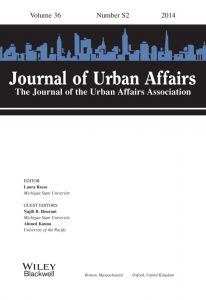Anti-Feminists to Women: To prevent rape, just shoot men. Constructing 'rapists' vs. 'normal men' in public discourse on sexual violence
Earlier this year, Zerlina Maxwell made the case on Fox News that carrying guns are not the solution when it comes to protecting women from rape and sexual assault. She tried to re-frame the debate, arguing that instead of focusing on what women do (or wear, or not do), we should talk about how we can teach men not to become rapists (as Cliff Leek pointed out, there are numerous amazing initiatives working with men all over the world now). However, Hannity, Trotter and a number of conservative bloggers on the internet were quick to reject the idea of even having this debate. Even worse than that (and as if to confirm Maxwell’s call for connecting constructions of masculinity to violence against women), some corners of the internet went on to harass Maxwell for her supposedly naive, dangerous and ‘men-hating’ comments, sending her not only racist and sexist messages but even death threats.
Taking a step back and looking more closely at the content of the debate and its underlying premises, it becomes clear just how contradictory, misguided and ideologically charged the anti-feminist backlash against Zerlina Maxwell and other feminist activists is. Although Maxwell was accused as a ‘men-hater’ for drawing attention to the importance of taking men and masculinity into account when looking at gendered violence, her argument is actually one that is far more positive towards men than is the anti-feminist case: Essentially, Maxwell argued (and feminists have done so for decades) that men don’t have to be the problem but can be part of the solution – by learning and by teaching other men and boys how to reject violence and how to treat women (and other boys and men) with respect – and by asserting that men have the ability to change. In contrast to this nuanced and positive argument that sees men as potential allies, the anti-feminist solution can be summarized as: ‘Women need to shoot men’. In other words, the anti-feminist position must assume that men are always and necessarily a danger for women and there is nothing we as a society can do about it. Often, these discourses then fall back onto what Martha McCaughey calls the ‘cavemen mystique’: biologistic arguments that claim that violence and a ‘natural’ urge to rape are inherently programmed into men’s brains. In this way then, the anti-feminist view of the likes of Hannity and others is far more insulting towards men than that of the supposedly ‘men-hating’ feminists like Zerlina Maxwell, since the former must assume that all men are born potential rapists, unable to change, whereas the latter strongly and explicitly reject this assumption.
The claim that guns will protect women from rape is also revealing of the misconceptions about gendered violence on a different level. Thinking that women could protect themselves by carrying concealed weapons and shooting their assailants implicitly assumes that rapists are monstrous predators, lurking in dark corners and park, attacking women at random (an image also connected to racialized discourses of Black masculinity in the US). However, although some women are sexually assaulted by random strangers, the vast majority of rape and sexualized violence is committed by perpetrators known to the women, girls and boys they victimize (the 2010 National Intimate Partner and Sexual Violence Survey found that less than 15% of rape victims were victimized by strangers): Rapists are far more often husbands, boyfriends, friends, acquaintances, fathers, uncles, ex-lovers or dates, coaches, priests or teachers than they are the random attacker ingrained into our popular culture. In other words, in order for firearms to be an effective solution to ending rape, women (as well as girls and boys) would have to be prepared to make use of them in their bedrooms and nurseries, at college parties, bars and in dorms, and often against people they trusted before the assault. The anti-feminist discourse has to ignore these realities and pretend that sexualized violence is the problem only of a handful of ‘sick’ men – it has supposedly nothing to do with the majority of ‘normal’ men they see themselves as. In other words: Paradoxically, the potential for violence and the urge to rape women are both inherent to men because of their ‘nature’, yet rapists are always a minority of others and sexual violence does not having anything to do with masculinity at all, the argument does. Go figure.
The inherent contradictions of the conservative case against connecting masculinity and violence as well as the ignorance towards the reality of rape and sexual assault found by numerous studies show that only a feminist analysis of gender and violence can move us forward towards eliminating rape and gendered violence. Clearly, the majority of men never become rapists and would strongly reject the notion that they would sexually assault another individual even if they could get away with it – disproving the anti-feminist argument that rape is simply part of ‘male human nature’. At the same time and as pointed out, data shows that rape is not a problem of only a handful of perpetrators, either. Rather than pretending that carrying firearms or telling women what to do or wear can be the solution to gendered violence, Zerlina Maxwell’s suggestion that we should figure out how toxic constructions of masculinity result in (some, but still way too many) men becoming perpetrators of sexual violence and creating educational tools to address this connection of masculinity and violence is well called-for.
Further Reading:





1520-6688/asset/Capture.jpg?v=1&s=b5076c49a7d1c5f1b9cf0dd9cd292394a3be81cc)

The arguments here are asinine. The reason to carry guns is, in this case, to have protection. The reason to display the weapon, is itself to discourage attack. It’s the idea that you talk quietly and carry a big stick. Women move from object status in the eyes of a predator to actor, capable of deadly retaliation. It removes force from the table for interactions with her, since it means she can only be reasoned with. If the men in question, see her armed, and still feel the need to engage in aggressive behavior against a non aggressive participant in an altercation, then society won’t miss the stupid. It’s not about shooting men, it’s about women taking personal responsibility for their safety and projecting strength. If you act like prey, predators will hunt you, and there are always predators in the shadows.
Two things:
#1. Your arguments falls back into victim-blaming: According to you, preventing rape is the job of women/ survivors/ victims because they are supposedly “acting like prey” and are not taking “responsibility for their safety”. Instead of joining the conversation of what can be done to prevent men from raping, it appears you would rather talk about how women are guilty in getting raped. Not helpful, and, frankly, an example of what is wrong with public debates about rape and sexual violence.
#2. The point is that “predators”, in most cases, are not lurking “in the shadows”. They are family members, ‘partners’, lovers, co-workers. Pretending that rape is a problem of strangers attacking helpless “prey” on the street (which) can be prevented by carrying guns is missing the point and is derailing an important conversation we need to have.
I don’t know if you’re still reading your comments. I’ve been studying gun rhetoric for over 10 years…can’t believe it’s still/again such a big slice of the American discourse pie. I’ve read/re-read Paxton Quigley’s pro-guns-for-self-defense-for-women book (& the update). I am not a fan of guns or the gun lobby. But here’s my struggle: the “change the society” rhetoric makes the very concrete threats against women on a daily basis too abstract. Arguments like Quigley’s keep the rhetoric concrete and practical and very present for very real women. And I haven’t yet found a gun regulation/”anti-gun” argument that adequately challenges Quigley’s point that in today’s society as it is, a woman can defend her w/ a gun better than by any other means…as much as I keep looking for such an argument! Yet I can’t buy into the argument that more guns is THE solution to America’s chronic social violence.
I wholly support your 2 points above. Yet they still don’t offer an adequate rebuttal to Quigley’s argument for the woman who right now finds herself threatened w/ rape.
Have you read Sharon D. Welch’s Feminist Ethic of Risk, where she argues about atomic weapons that it’s not realistic to shoot for total eradication, but to create a world and establish policies where such weapons become the very last resort and so their use becomes rare? I think about her argument relative to guns, in a violent American society, where we need to move our society to a place where the need for guns–for men and women, urban and rural, rich/middle class and poor–becomes rare. I don’t know how we create a discourse that moves us in that direction, especially when debate about guns itself is imbued w/ undertones of violence.
Thanks for the thoughtful comment. I have tried to address the questions you raise in my latest article here: http://thesocietypages.org/sociologylens/2014/01/22/do-guns-make-womens-lives-safer/
“…arguing that rape can be prevented if men learn not to rape…”
This seems to be predicated on the notion that ‘not raping’ is something that has to be learned, the subtle implication being that ‘raping’ is the normal state of affairs for males. The solution to which is to educate them that ‘rape is bad’. This comes off as a bit misandristic, especially in this paragraph:
“Essentially, Maxwell argued (and feminists have done so for decades) that men don’t have to be the problem but can be part of the solution – by learning and by teaching other men and boys how to reject violence and how to treat women (and other boys and men) with respect – and by asserting that men have the ability to change.”
Here Maxwell places the blame, not on rapists, but on men as a whole in no uncertain terms, the result of their masculinity the author assures us. It is unsettling to see that rape in this article is spoken of almost exclusively in highly gendered terms. The rapist is male and the victim is female. That many victims are male or that sometimes the perpetrators are female is rarely mentioned even as a side-note.
It would seem to be the case that rapists know that rape is wrong but do it anyway, not dissimilar to most any other crime. Rape is often (but not always) a crime of opportunity. The perpetrators are generally those that have the opportunity to rape and lack the moral fortitude to resist sexual urges that are to the detriment of others. In fact, most rape victims are inmates in the prison system.
While rape overall, along with all violent crime, has been in decline for the last two decades it is a serious issue. I Imagine teaching people (that’s right, people not just men) to not rape would be as effective as teaching people to not murder. While I don’t think there is a ‘magic bullet’ to prevent rape, I think the best way to combat rape is to combat those factors that contribute to crime generally: poverty, illiteracy, homelessness, etc.